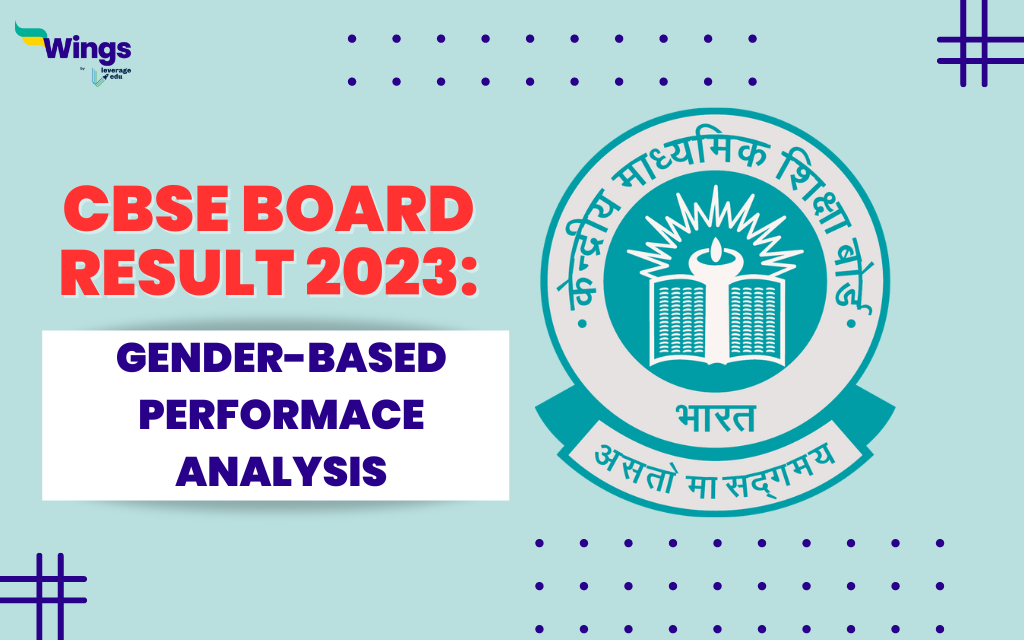The Central Board of Secondary Education (CBSE), which oversees all of the board’s affiliated schools, will announce the results of the Class 10 and 12 examinations in 2023. The CBSE exams for this year were administered from February 15 to March 21. Candidates will be able to view their results after they are released on the official websites, cbseresults.nic.in, results.cbse.nic.in, and cbse.gov.in. The performance of female students has greatly improved during the past five years. While the pass rate for female students was 88.67% in 2018, it increased to 92.45% in 2019 by about 3%. Here is an analysis of gender-based performance in the CBSE board results over the past five years.
Contents
Girl’s Pass Percentage
With a pass percentage of 93.31% in 2020, the girls’ performance increased once more. Due to COVID-19, CBSE cancelled the board exams in 2020, and a substitute evaluation plan was developed to evaluate students.
| Year | Girls Pass Percentage |
| 2018 | 88.67 |
| 2019 | 92.45 |
| 2020 | 93.31 |
| 2021 | 99.24 |
| 2022 | 95.21 |
In 2021, the pass rate for girls increased significantly. It is crucial to remember that the board postponed the tests because of the Covid-19 pandemic.
The CBSE exams were given in two terms, or semesters, in 2022. The girls’ performance in 2022 was slightly worse than in 2021, although it was still better than in 2018, 2019, and 2020. The percentage of female students who passed fell to 95.21% in 2022, a decrease of about 4%.
More than 21 lakh students took the exam last year, and 94.40% of them passed Class 10. There were two sections to the tests. Exams for Part II and Part I were given in May and June, respectively. In July, the results were announced.
Must Read: CBSE Board Result 2023: CBSE Toppers List
Boys Pass Percentage
Here are the pass percentages of boys in CBSE Board results for the past couple of years:
- CBSE Board Result 2021: The pass percentage for boys was 98.89% in class 10 exams and 98.59% in class 12 exams.
- CBSE Board Result 2020: The pass percentage for boys was 91.46% in class 10 exams and 86.19% in class 12 exams.
- CBSE Board Result 2019: The pass percentage for boys was 92.45% in class 10 exams and 91.03% in class 12 exams.
Overall, the pass percentage for boys in CBSE Board results has been consistently high in recent years, with a slight increase from 2019 to 2021. However, as previously mentioned, there has been a persistent trend of girls outperforming boys in CBSE Board exams, indicating a gender gap in academic performance.
Must Read: CBSE Board Result 2023: How to Download CBSE Result Scorecard
Gender-Based Performance: Subject-Wise Analysis
Based on previous years’ data, girls tend to perform better than boys in CBSE Board exams in subjects such as English, Mathematics, Social Science, and Biology. In contrast, boys tend to perform better in subjects such as Physics, Chemistry, and Computer Science.
The gender-based performance difference in each subject could be attributed to various factors, including differences in academic interests, teaching styles, and societal norms. For instance, girls tend to show more interest in languages and social sciences, while boys are often encouraged to pursue careers in STEM fields, leading to their better performance in subjects such as Physics, Chemistry, and Computer Science.
It is essential to note that the performance of individual students is not solely based on gender, and there may be individual differences and variations in academic performance within each gender. Additionally, efforts should be made to ensure that all students have equal opportunities and support to achieve their full potential in all subjects.
Overall, analyzing gender-based performance in different subjects can provide insights into the academic performance of students and can help identify areas of improvement to reduce the gender gap in education.
Must Read: CBSE Board Result 2023: CBSE 10th and 12th Result 2023 Pass Percentage
Gender-Based Performance: Reasons for the Gap
In the past, CBSE Board results have shown a gender-based performance gap, with girls outperforming boys in overall scores. This trend has been consistent across the years, and there are several reasons that can be attributed to this.
- Study habits: Girls tend to be more focused and disciplined when it comes to studies. They are known to be more organized and diligent in completing their assignments and preparing for exams.
- Social pressure: In many families, there is a lot of pressure on girls to perform well in academics. Families put a lot of importance on women’s education. This can motivate them to work harder and achieve better results.
- Learning style: Girls tend to be more attentive and participative in classroom discussions. They are also more likely to take notes and review their lessons regularly, which can help them retain information better.
- Gender stereotypes: Boys are often encouraged to focus more on sports and other extra-curricular activities, while girls are encouraged to prioritize academics. This could lead to girls being more academically oriented and achieving better results.
It’s important to note that these are generalizations and individual factors can vary. Ultimately, each student’s academic performance is determined by a combination of their own efforts, natural ability, and external factors such as family support and quality of education.
To know more about CBSE Board Results 2023, subscribe to Leverage Edu.


 One app for all your study abroad needs
One app for all your study abroad needs












 60,000+ students trusted us with their dreams. Take the first step today!
60,000+ students trusted us with their dreams. Take the first step today!